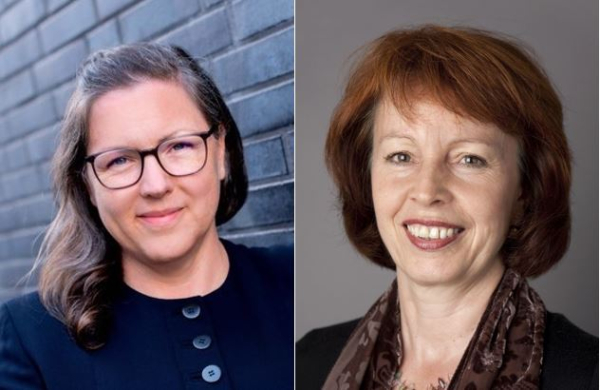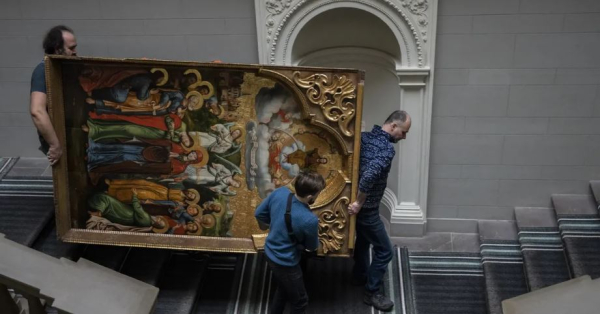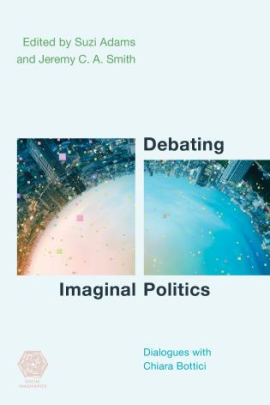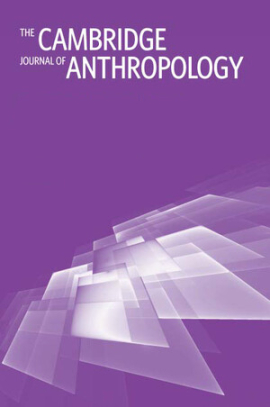|
If the newsletter does not display properly, please click here. |

|
||||
|
||||
|
Dear friends and colleagues, As the quiet March at the KFG draws to a close, we are happy to announce that our next colloquium will be held next week with our Senior Research Fellow Todd Weir. In April, we will have to say goodbye to some of our Fellows but also welcome new ones. Furthermore, we have two publications for you, our latest bulletin article and a recommendation for a webinar. Have a good week and take care! Anja & Lucy |
||||

|
||||
Fellows at KFG: Welcome and FarewellWe would like to welcome our new Senior Research Fellows Sita Steckel and Christel Gärtner to the KFG. Sita Steckel will be working on her project with the title “A critical assessment of the role of the European Middle Ages for the emergence of specific concepts of secularity”. She is Associate Professor for the History of the High and Late Middle Ages as well as Principal Investigator at the Cluster of Excellence “Religion and Politics” at the University of Münster. Christel Gärtner will contribute to our KFG with her research project on “Secularity as a point of reference in how people position themselves biographically”. She is a Professor at the Cluster of Excellence “Religion and Politics” at the University of Münster and Principal investigator for the Graduate School RePliR (“Regulating Religious Plurality in the Region”). Both Fellows will stay with us for the next six months. We are very happy to have you with us and welcome you warmly to our team! |
||||

|
||||
|
This month we also say farewell to four of our Senior Research Fellows: Katharina Wilkens and Peter Kneitz stayed with us for one year from April 2021. Peter worked on his project “Negotiating the Boundaries of the Secular State Project on Madagascar: The Trend towards Institutionalization and Heritagization of fihavanana gasy (Malagasy solidarity) since Independence”, while Katharina contributed to our KFG with her work on “Ancestor Spirits in Secular Society – Negotiating Agency, Space and Heritage in Africa and Beyond”. We also say goodbye to Silke Steets and Thomas Schmidt-Lux who have spent the last six months with us, Silke working on her project “Conversions: Transitioning from/to Evangelical Christianity in Leipzig and Dallas” and Thomas on “Secularity and secularization in the medium of architecture. Studies on Turkey, India and the Soviet Union”. We thank you, Katharina, Peter, Silke and Thomas, sincerely for your contributions and the good cooperation. You have been a great enrichment to the project. |
||||

|
||||
Next Week’s Colloquium: Todd H. Weir on “Red secularism between secularization narratives and secular studies. Germany's socialist-secularist subculture prior to 1933”, 6 AprilNext Wednesday we will be having our next colloquium, this time with our Senior Research Fellow Todd H. Weir, who will give a presentation on “Red secularism between secularization narratives and secular studies. Germany's socialist-secularist subculture prior to 1933” in connection with his book project “Red Secularism: Socialism and Secularist Culture in Germany 1890 to 1933”. Our Associate Member Horst Junginger will comment on his presentation. You can find the relevant readings in our Member Area. The colloquium will take place in a hybrid format (on-site and online). Please register for the colloquium via e-mail, if you would like to join in person. In the Member Area you will also find information on the zoom connection data.
Hybrid format | KFG office building, Nikolaistr. 8-10, Room 4.55 + Online via Zoom |
||||

|
||||
New Bulletin Entry: Podcast with Nur Yasemin Ural on “The Colonial Affects of Secular Europe”We would like to draw your attention to our latest Bulletin Entry: Our Senior Researcher Nur Yasemin Ural, together with Jonas Bens from the Collaborative Research Center “Affective Societies” at Freie Universität Berlin, had a conversation about “The colonial affects of secular Europe” for the Podcast series of the Affect and Colonialism Web Lab. This podcast series aims to shed a critical light on colonialism’s affective lives and afterlives. Our Bulletin gives the opportunity to comment on current political, social or cultural events and developments from the perspective of Multiple Secularities, to place them in a broader context through our expertise or to present alternative perspectives. If you wish to make short, journalistic style contributions to the Bulletin, please contact Johannes Duschka.
|
||||
|
||||
|
||||
|
||||

|
||||
Expert Webinar on “Ukraine: Heritage in Conflict”, 5 AprilOur Senior Research Fellow Todd H. Weir points to a webinar on the fate of heritage in the current conflict in Ukraine, hosted by the Centre for Religion and Heritage at the University of Groningen. Speakers will be Nicholas Denysenko from the Valparaiso University/U.S.A., Yuliya Yurchuk from the Umeå University/Sweden and Vsevolod Samokhalov from the Brussels School of Governance. Please register in advance via this website or e-mail. 5 April | 5.00 – 6.30 p.m. (CET) Online
|
||||
|
If you have any content that you think suits the purpose of the weekly, please feel free to send it to us at multiple-secularities@uni-leipzig.de. |
||||
|
Kolleg-Forschungsgruppe "Multiple Secularities - Beyond the West, Beyond Modernities" Nikolaistraße 8-10, 04109 Leipzig Mail: multiple-secularities@uni-leipzig.de |

